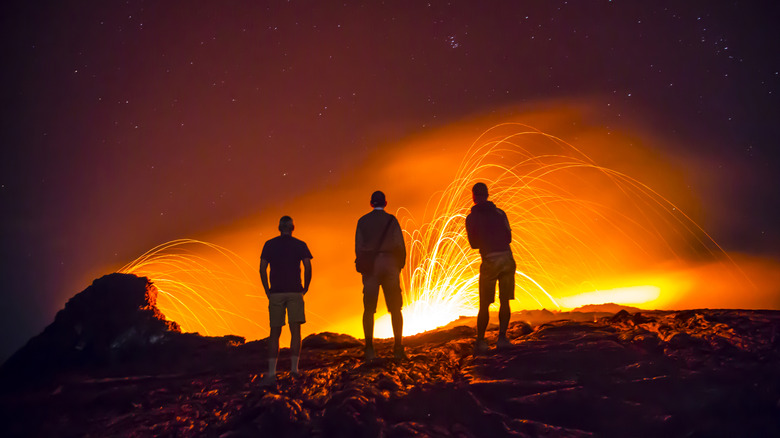The Real Reason You Should Throw Out Your Vacation Bucket List And Embrace The Unexpected
Checklists are good. Sometimes, checklists are great. While grocery shopping, mapping out your workday, and even packing for a trip, checklists get the job done. But on vacation, after you've made your connections and unpacked, you don't need a bucket list. Here's why: That list was made at home, when you were creating a mental image of what your trip was going to be like. Now you're here, and wherever "here" is, doors will open to you that you never could have possibly imagined before. When opportunity comes a-knocking, you can choose to either ignore the banging inside your heart and carry on with your plans or open the door and step into a new world.
Documentary photographer Dorothea Lange once said, "To know ahead of time what you're looking for means you're then only photographing your own preconceptions, which is very limiting, and often false." She is telling us that truly magical moments happen only after you rid yourself of expectations. It's just like another quote: "Funny thing about joy is that you only really find it when you're too busy having fun to go looking for it."
There are benefits to all types of traveling. Regardless of whether or not you want to follow a list or follow your heart, you will still have a fantastic time on vacation. However, more and more folks are booking travel plans last minute and embracing spontaneity to find truly unique travel experiences. Leaving some room on your next trip for things you never even considered happening can bring you a feeling of joy that lasts a lifetime.
When you travel spontaneously, anything can happen
If you're reading this, you have officially been visited by the patron saint of the spontaneous. Unfortunately for you, this isn't one of those spam emails whose hex can supposedly be removed by forwarding. The only thing that will satisfy this matron of backpackers is for you to make a vacation bucket list, double-check it, and toss it in the garbage.
After you do that, you'll be forever a part of the secret society of the spontaneous. Members of this club have written some of the world's most well-read travel stories. Icons like "Eat, Pray, Love," "On the Road," or "The Motorcycle Diaries" all describe life-altering experiences that happened after their authors surrendered to spontaneity. Along with plenty of firsthand reports and epic memoirs, there's also scientific evidence that unexpected moments and traveling without plans can benefit you creatively and psychologically. In a Skyscanner study on impulse travel habits, Psychologist Emma Kenny reported that "Spontaneity is clinically proven to reduce stress and increase levels of self-esteem."
And yes, it's true that there are also downsides to spontaneity. There's a reason why people pay more to see a well-rehearsed play than an improv show. Improvisation is rarely the fastest or most polished way from point A to point B. Spontaneity will lead you to dead ends, missed trains, and getting caught in the rain. However, even when spontaneity lands you in tricky corners, getting out of them will teach you to trust yourself. And, the practice will lead you to authentic meals, street dances, and lifelong friendships, because improvisation is almost always more fun than sticking to a script.
How to practice spontaneity while traveling
Embracing the unexpected simply means saying "yes" when your gut tells you to, even if it's not in your original plans. The first few spur-of-the-moment decisions might feel difficult, but eventually you'll be throwing yourself into the mix with ease. Start small by taking the scenic route back to your accommodation. Minor detours might lead you towards a busker playing a tune that picks at your heart strings, or a glorious pair of boots in a shopfront window.
You might think that spontaneity means you'll have to be in a different town every night, but in fact, the opposite is true. If you've always got to check in at 4 p.m. and check out by 10 a.m., that doesn't leave a lot of room for freedom. Stay in one place for several days, or try checking in somewhere without a concrete plan for when to check out. If you learn to properly make the most of your stay in a hostel, pretty soon you won't make it from the kitchen to your room without somebody asking if you want to go for coconuts. Look for hostels with quality, shared kitchens — cooking meals around other people is a great way to slowly break the ice. Kitchen conversations that start while opening cans of tomato sauce and discussing dinner frequently end with two new friends washing the dishes and cementing plans to hike up a volcano at midnight.


